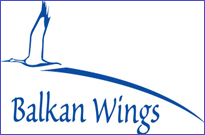Latvia: Latvia Tourism Profile 2012
2012/03/15
Latvia Tourism Profile 2012
Analyse of the sector 29/11/2010
Economic recession hits Latvia
Economic recession hits Latvia
The Latvian economy was severely impacted by the global financial crisis in 2009, as the country’s GDP declined by some 18%. The contraction of demand both at home and internationally led to a decline in industrial output, while the country’s unemployment rate saw growth of 20%. In 2008, the government bailed out the leading national bank, Parex banka. Latvia has received a support loan of EUR7.5 billion from the International Monetary Fund, the European Union, the World Bank, the Nordic countries and a number of other donors to be paid back over a three year period. As a result, the Latvian government reduced public spending in 2009, while further tax increases are expected in 2010.
Foreign investment in Latvia declines
The Latvian government, which encourages foreign direct investment in the country, is working to improve the country’s business climate. The government has announced its intention to bring the country’s economic institutions, legislation and regulations in line with applicable EU directives. According to the Central Statistical Bureau non-financial investment in Latvia in 2009 stood at LVL1,702 million, a decline of 34% from 2008. Major investments in 2009 included the construction of the Slavu overpass section of the Southern Bridge project, and the construction of the National Library. By 2009, the European Bank for Reconstruction and Development (EBRD) had a total of 30 projects, valued at EUR849 million, in Latvia. Furthermore, the EBRD has invested up to EUR20 million in the BaltCap Private Equity Fund to support medium-sized enterprises in the Baltic States. Further investment in infrastructure and industry is expected as the Latvian economic environment improves.
Airbaltic strengthens its position
The Latvian national airline, Airbaltic strengthened its position in the Baltic region in 2009. In 2010, Airbaltic will introduce nine new direct routes from Riga, including new destinations such as Madrid, Belgrade, Vaasa, Umea, Beirut, Amman, and Manchester. The bankruptcy of the national Lithuanian airline FlyLal in 2009 allowed Airbaltic to increase its presence in Lithuania. In addition, the airline acquired full ownership of a cargo business at Riga International Airport, which it intends to operate under the BalticCargo brand.
Financial crisis affects spending
Latvia had enjoyed rapid economic growth prior to the onset of the global financial crisis. The subsequent recession in the Baltic region, as well as in Europe, led to a contraction of demand amongst the country’s major trade partners. This ultimately resulted in growth in Latvia’s unemployment rate, as companies introduced cost cutting measures, including staff reductions. Furthermore, Latvian consumer spending power has seen a decline. In 2009, people were more careful in their spending, which resulted in basic products and services being in high demand relative to more expensive luxury equivalents. Inexpensive holiday solutions likewise experienced increased demand in 2009.
Rural tourism experiences slowed growth
According to the Lauku celotajs, Latvia’s rural tourism association, there were a total of 245,400 visitors to rural destinations in Latvia in 2009, a decline of 23% from 2008. The declining number of tourists visiting rural areas intensified competition, leading owners of small hotels and guest houses to reduce their prices. Furthermore, tourists were careful in their spending and used a limited number of services compared to previous years, which led to a 35% decline in rural tourism value sales in 2009.
- Latvia News
-
- AFGHANISTAN: UNWTO: International tourism – strongest half-year results since 2010
- ALBANIA: US LNG exports make European market more competitive
- LATVIA: Latvia PPI Rises At Faster Rate In July
- AFGHANISTAN: Higher earning Why a university degree is worth more in some countries than others
- LATVIA: Latvia Current Account Turns To Surplus In December
- ALBANIA: Europe in 2016: Terror fears, migration, politics. But economy may turn a corner
- Trending Articles
-
- CHINA: China welcomes Guinea to take part in Belt and Road Initiative
- CAMEROON: Poor End of Year Results for Cameroon Students
- UGANDA: Ugandan Govt Starts Verifying International Academy Teachers
- AUSTRALIA: Queensland Bauxite Gains State Approval of Mineral Development Work Program
- CHINA: Chinese-supported infrastructure projects change Zambia's landscape
- UNITED STATES: Spotify, Hulu target students with discounted bundle







